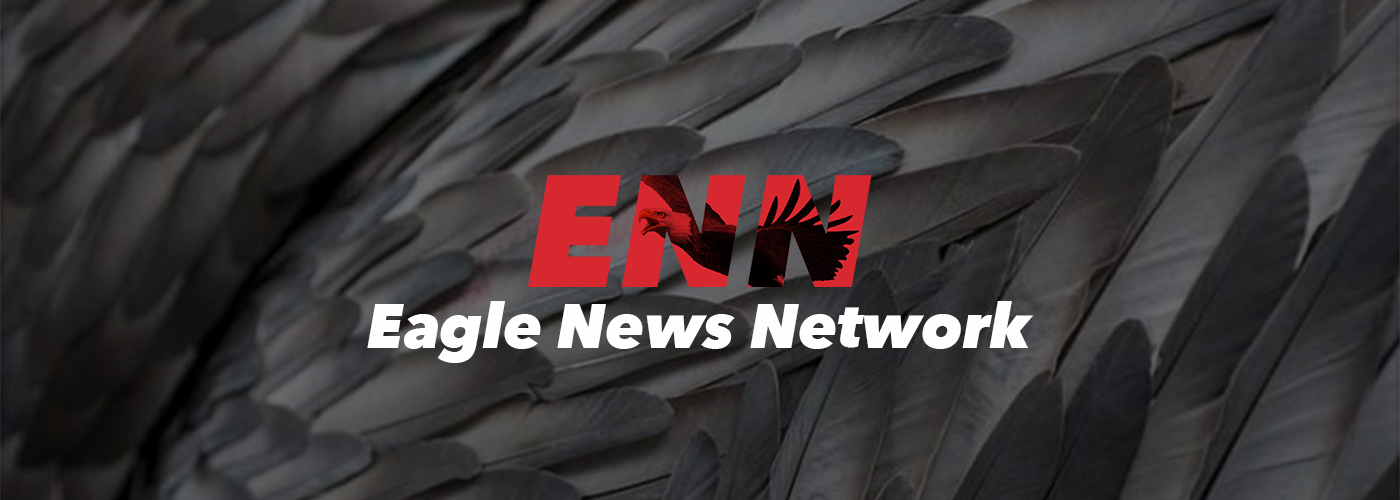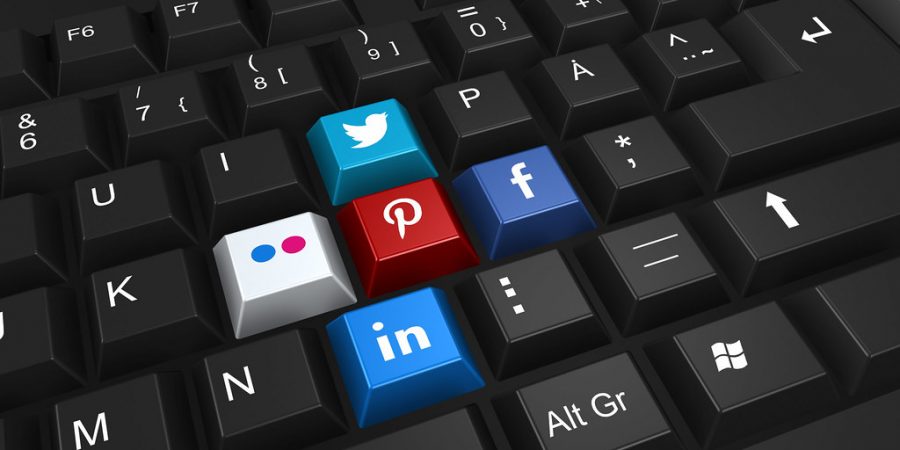#CANCELLED: Time to Cancel Cancel Culture
December 11, 2020
As influencers gain more and more traction on social media and problematic past (or current) actions are uncovered and pushed into the spotlight, posts calling out these behaviors start circulating. The influencer in question is often shamed and faces consequences of all sorts in a phenomenon known as “cancel culture.”
On the surface level, cancel culture doesn’t sound terrible – its main goal is to hold someone accountable after all, and it does that semi-successfully. However, there are plenty of underlying issues with cancel culture that make it toxic, confusing, and (worst of all) make it so the cancelled person doesn’t learn from their mistakes. Cancel culture can be questionable, but in a social media-driven world, its power proves strong over influencers and pop culture enthusiasts.
Why do people get cancelled in the first place?
The most common reason would have to be for being racist. Whether a celebrity said a slur or did blackface, both are sadly far too common and it’s perfectly valid to hold someone accountable for this. Other possibilities include sexism, homophobia/transphobia, assault, or acting unprofessional.
Toxicity on Twitter
Twitter is arguably one of the most damaging social media apps to an influencer’s career, considering that the platform has been the center of various jokes and misinformation. Having a fanpage on Twitter for a TikToker, I have experienced firsthand the immense power cancel culture has over influencers and fans. I interact with a lot of fanpages who sometimes tend to spread pretty convincing, although false, rumors and conspiracies. Sometimes, my whole feed is all negative tweets about a certain influencer, all because someone started a rumor against them.
Some Twitter users don’t always choose to engage in any of it, which leads to others harassing them, believing that they are defending the person in question. I think it is absolutely ridiculous that cancel culture has started this environment of pointing fingers at someone who chooses not to believe in or post any rumors. There are plenty of reasons why someone would choose not to engage in that, and it certainly does not always mean that they are defending the influencer involved. Cancel culture has started to normalize bullying, and really should not be as toxic as it currently is. All it takes is for someone to unfollow an influencer and not engage with their content to cancel an influencer, but instead, people have taken it to the extremes by bullying others in order to do so.
Why “over parties” are over:
If you’re browsing Twitter one day, you might see a trending hashtag called an “over party”. These so-called parties are supposed to be a combination of callout posts and celebrations that a problematic person has been cancelled. This is not always the case, though. Often, people will spam “fancams” (edited fan-made recordings of a celebrity) using the hashtag, making it harder to get the grasp of the actual problem. Don’t try asking the spammers what happened either because you will more than likely receive a snarky reply that doesn’t answer the question.
Due to the actions of these annoying spammers, the “over party” has become a bit of a meme on Twitter, and people will make new parties when the person hasn’t even done anything wrong for the sole purpose of spreading fancams or jokes. Not only does this make it much harder to separate the real issues from the misinformation, but it’s making a mockery of the callout portion of cancel culture. The issues that lead someone to be rightfully cancelled are almost always serious ones, and the memes are honestly insulting to those who want to help people recognize and change their behavior. Turning cancel culture into a joke isn’t going to make people change – what will help is constructive, valid criticism and explanations of why what they’re doing is wrong.
Why don’t we have more educated influencers? Is that actually possible?
While cancel culture has been heavily scrutinized, there have also been positive solutions to cancel culture. Fortunately, what has definitely become more normalized in recent months is the idea of educating your favorite influencer rather than going after their career. This notion has increased on all social media platforms, but especially on Twitter, since users can share websites and articles in hopes to educate others about certain global issues. Many young influencers have been exposed in the past for saying the n-word, such as Larray and Maddie Ziegler. Both have since issued apologies for their actions, and it was all due to fans from both fandoms and other fandoms constantly demanding for their apologies, while providing information about the derogatory term for others to educate themselves on.
I have seen the impact of holding influencers accountable by educating influencers rather than straight up destroying their career, and it really has been more impactful and has more of a positive impact than directly cancelling them. Not only does the influencer involved begin to have an increased awareness on what’s right and wrong, but they also help educate their friends and the fans themselves.
“Cancel Capitalism”
It’s no secret that many influencers make a lot of money for what they do. This in itself isn’t really a problem, but what does cross the line is when they use their own scandals to sell something. This problem has made its way into several brands. A recent example of this would be the makeup company P. Louise, whose owner was involved in a scandal about her singing the n-word at a concert last year. A few weeks ago, the company announced a new release called the “Cancelled” collection, featuring eyeshadows with names like “Fake News” and “Drama”. This – combined with the owner previously complaining about the toxicity of social media – essentially boiled getting “cancelled” down to people on the Internet being mean to her, even though it was actually just people calling her out. That sounds like a form of guilt-tripping to me and it comes off as tacky and insincere. It shows she hasn’t grown from her mistakes, and that’s the complete opposite of what people calling her out want for her.
You’ve Been Cancelled Before! Why Are You Still Around?
I would assume influencers would want to present themselves as generally kind and sane people. Unfortunately, this doesn’t seem to be the case with quite a few of them. These self-proclaimed “problematic faves” have only one belief about fame: negative attention is better than no attention. They profit off of scandals and the Internet’s disdain of them. They thrive when involved in drama. It seems like every other week they’re getting cancelled in the thick of the latest scandal, but does it ever last? Seemingly not – after a tearful and poorly scripted apology video, pretty much all of the fans forget about the drama and move on with their lives. Superfans will then shoot down any criticism about the influencer after that, claiming that “they said sorry! They’ve changed!”
But the problem is, the problematic ones haven’t changed. In a few weeks, another issue will be brought to light and they continue to profit. Everything feels ingenuine and they don’t learn from their mistakes. That’s an enormous problem. Take TikTok star Zoe LaVerne, who has allegedly abused and cheated on her ex-boyfriend and (most recently) kissed an underage fan. LaVerne had been cancelled prior to her most recent scandal, yet her problematic antics continue. This is clearly terrible, yet her response to both incidents has been viewed as lackluster, for lack of a better word. I wish that we would stop letting influencers get away with these behaviors because they need to learn and grow as people. Not holding your fave accountable also negates the “change” aspect of cancel culture, too.
Toxic Tea Pages? That’s Tea.
Instagram has also brought upon a toxic environment for cancelling influencers. Popular tea pages such as @/tiktokroom publish screenshots and videos of things that influencers have done via direct message submissions, while claiming that it is merely just an update page about influencers. In reality, @/tiktokroom and accounts similar to it have posed a gigantic problem when it comes to cancel culture.
So what exactly is wrong about update accounts like @/tiktokroom? It’s one thing to update followers about news surrounding their favorite influencers, but it’s another thing to be an update account that circulates negative comments and has a clear opinion about a certain situation. To be fair, negative comments are inevitable – you simply cannot avoid them. However, when the majority of comments on a post are shaming an influencer and sending death threats to them or their supporters, that’s when you have a major problem. @/tiktokroom does not get my full approval because of these reasons. They could simply remove a bunch of negative comments or restrict them; instead, they’ve allowed cyberbullying to occur frequently. Most influencers don’t like @/tiktokroom for the same reasons, and I think that the page has not only lost its purpose of being solely an update/tea page, but has also contributed to making cancel culture more toxic.
100 Million Followers is A Lot and Snails Are Disgusting!
A recent scenario that (to me) sums up a lot of the problems of cancel culture would be what happened with the D’Amelio sisters. After they uploaded a video on their YouTube channel a few weeks ago, people were calling them out left and right and sending hatred, death threats, and even comments telling them to kill themselves. There are absolutely ZERO reasons for you to tell anyone to end their own lives. You never know what someone might be going through, and the people who sent those messages could have caused the sisters to actually commit suicide. In the midst of all the hate, Charli held back tears as she took to Instagram Live to express her concerns. Cyberbullying has always been a major issue amongst teenagers all over the world, yet cancel culture continues to make it acceptable.
You might be wondering what they must have done to cause such an outcry. Dixie was called out for being over dramatic and bratty after eating a snail at dinner and throwing up, while Charli made a comment about how cool it would be for her to hit 100 million TikTok followers by the time her 1-year anniversary on TikTok rolled around, leading people to call her ungrateful. In the grand scheme of things, these are extremely minor offenses, if one can even call them that. Yet these teenagers were receiving thousands of horrific messages for… what, acting like teenagers?
To make matters worse, there are people like Zoe LaVerne who have evidence of them acting creepy towards minors, and they face relatively few of the consequences they deserve? Or maybe need? Yet when generally unproblematic influencers such as Charli make tiny mistakes, they get obliterated by the Internet. I think that we need to get our priorities straight when we’re about to cancel someone. We shouldn’t try to end people’s careers for minor or grossly outdated offenses (as long as the person has shown change). Cancelling someone for having harmless opinions or being bratty at times is a tad extreme to me.
What can we do about it?
Cancel culture is evidently an issue that persists on social media. As toxic as it is right now, it is important to be mindful as more drama is bound to unfold. While any and all opinions are valid, everyone must also try to respect every opinion and not post too many negative comments while a scandal is going on. An excessive amount of hate comments can lead to cyberbullying, which has the power to severely damage people’s mental and physical health. Instead of attempting to destroy an influencer’s career, everyone should try to hold all parties accountable and continuously educate others on important topics without bullying influencers and other fans. I doubt that cancel culture will disappear entirely, but there are ways to make cancel culture less toxic.







